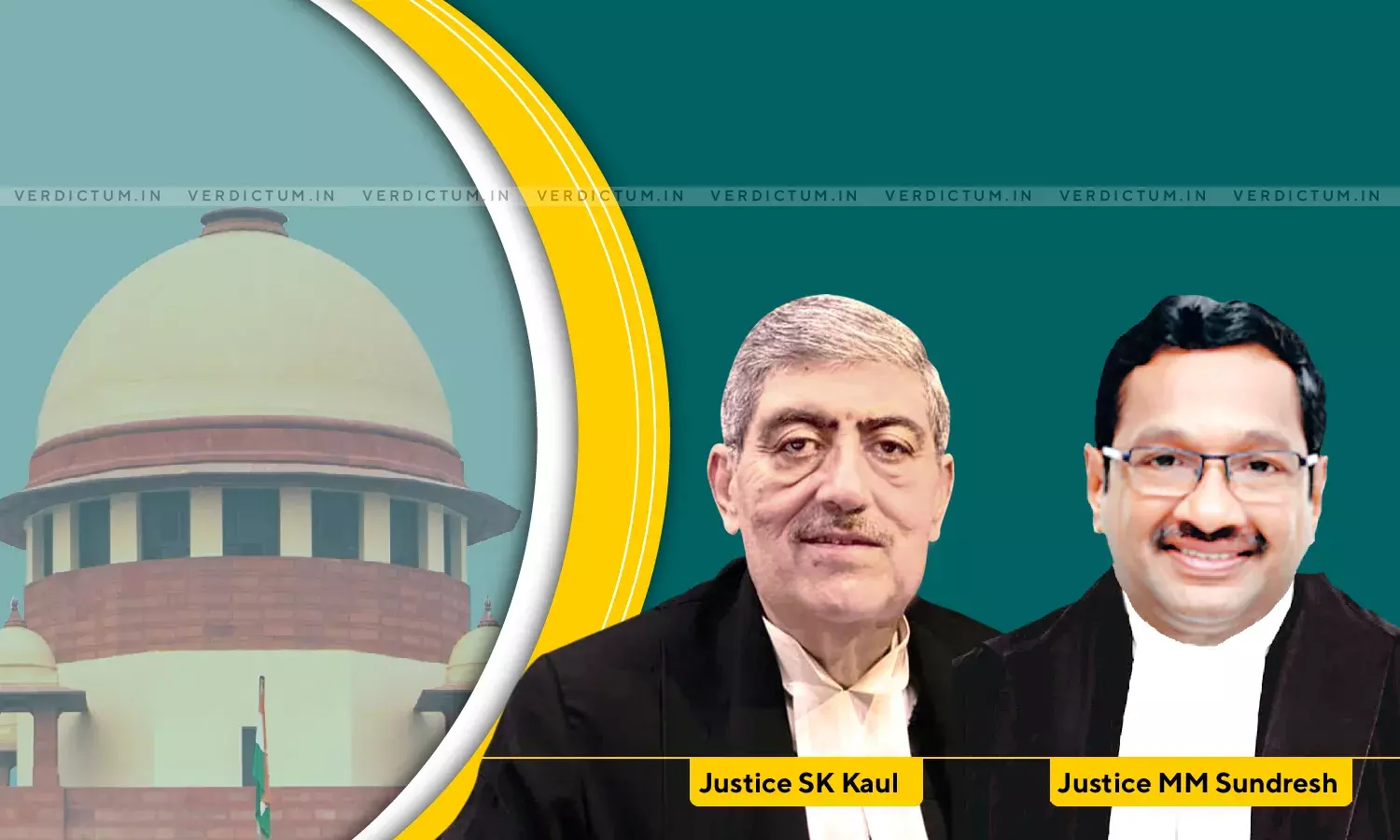In The Absence Of Bar Under Rules, Tenure Appointment Made Through Direct Recruitment Is Not Illegal– Supreme Court

A two-judge Bench of Justice SK Kaul and Justice MM Sundresh has held that, "In the absence of any statutory bar under the rules, a tenure appointment made through direct recruitment by following the due procedure cannot be termed as contrary to law."
An appeal was preferred against the judgment of the Division Bench of the Karnataka High Court which had allowed the appeals of the Respondent without granting an order of reinstatement, by compensating the Respondent.
In this case, the Respondent was appointed a Director-General in the Central Power Research Institute by way of 'direct recruitment.' When his tenure was about to end, he made a representation that since his appointment was by way of direct recruitment, he should be treated as a regular employee and therefore his tenure would continue till the date of his superannuation.
However, the representation of the Respondent was rejected by the Appellants on the ground that it would not be in the interest of the institute to extend the tenure-based appointment for a further period. Also, fresh recruitment was conducted, through which the private Respondent (in this case) was appointed as a new Director-General.
The Apex Court, before hearing the contentions of the parties, noted the following principles which were applicable in the case –
1) Sections 3, 7, 8, and 39 of the Indian Contract Act which deal with offer, acceptance, and revocation of the proposal;
2) Principle of Delay, Laches, and Acquiescence;
3) Approbate and Reprobate;
4) Scope of jurisdiction under Article 226 of Constitution of India;
5) Doctrine of Fairness; and
6) Working Rules of the Appellant institution
The Appellant before the Court contended that the relief sought by the Respondent could not be granted on the ground of delay, laches, and acquiescence. Also, the principle governing approbation and reprobation would disentitle the Respondent from obtaining relief under Article 226 of the Constitution.
While the Respondent contended that the impugned order passed by the Appellants was not merely a reliving order, but an order of termination. It was argued that there were no statutory rules for tenure appointment and hence he must be treated as a regular employee.
The Court held that the Respondent would not be entitled to any relief based upon the principles governing delay, laches, and acquiescence followed by approbation and probation, while invoking Article 226 of the Constitution of India.
"We are dealing with a post that stands at the top realm of the administration. There is an intended object and rationale attached to the post. It is the incumbent of the post who has to carry forward the object and vision in the field of research," the Court asserted.
Further, the Bench noted, "There is certainly an overwhelming public interest involved. The employer has a load of discretion available. In the absence of any arbitrariness, one cannot question its wisdom. After all, a decision has been taken at the highest level. We cannot infer that materials have not been placed before taking the decision,"
Holding Division Bench was not right in its finding that the highest constitutional authority on the executive side was misled by lower officials, the Court opined, "A conscious decision has been made to go for a tenure appointment in the interest of society. Similarly, a conscious decision was also made to go for a fresh recruitment."
The Court held that the reliving order of the Appellant cannot be construed as a termination order.
"The rules as perused and understood by us do not prohibit a tenure appointment. In the absence of any prohibition and mandatory mode of appointment, the appellant's decision in going for a tenure appointment is perfectly in order."
"On reading the appointment order, we could not identify the existence of automatic extension. The order is very explicit in saying that it is subject to suitability, and such suitability for re-appointment having been considered, this Court is not expected to substitute its view," the Court held.
In the light of these observations, the Court allowed the appeal and set aside the impugned judgment of the Karnataka High Court.
The Court also dismissed the appeal of the Respondent holding that he was not entitled to any extension and consequential benefits could not be granted.

